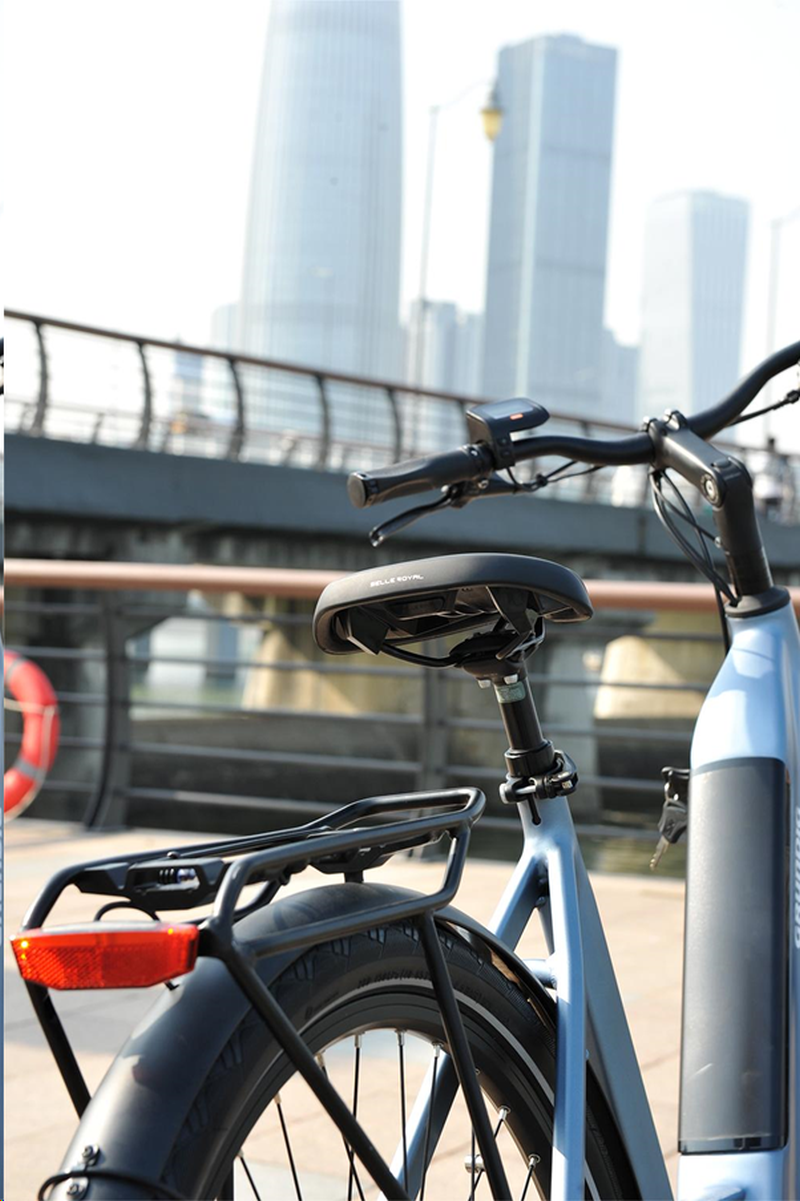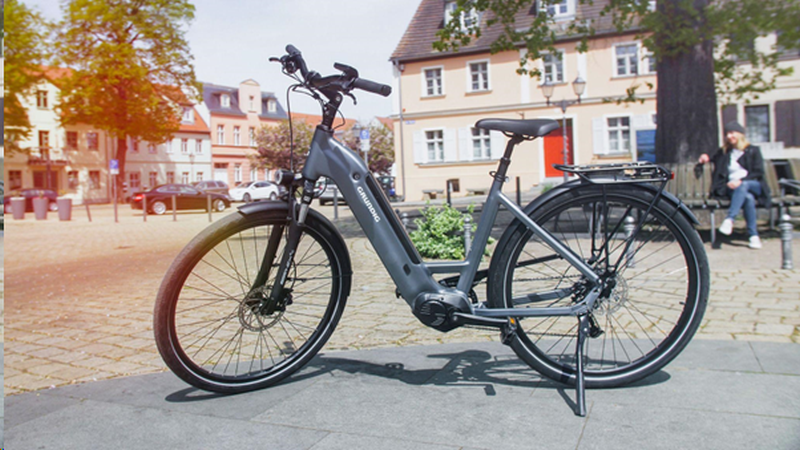E-bikes have become increasingly popular in recent years as people seek out environmentally friendly modes of transportation. These bicycles are equipped with an electric motor that provides assistance to the rider, making it easier to travel long distances or navigate challenging terrain. In addition to being convenient and cost-effective, e-bikes offer a number of environmental advantages that make them an attractive option for those looking to reduce their carbon footprint.
One of the most significant environmental benefits of e-bikes is their ability to reduce air pollution. Traditional modes of transportation such as cars and buses emit harmful pollutants into the air, contributing to poor air quality and a range of health problems. By using an e-bike instead, riders can significantly reduce their personal contribution to air pollution and help to create a cleaner, healthier environment for everyone.
E-Bikes and Air Pollution Reduction
Electric Power and Zero Emissions
One of the major environmental advantages of e-bikes is their ability to reduce air pollution. Unlike traditional petrol-powered vehicles, e-bikes run on electric power and produce zero emissions. This means that they do not emit harmful pollutants into the air, making them a cleaner and greener alternative to cars and motorcycles.
Effects of Air Pollution
Air pollution is a major environmental issue that can have serious health impacts on humans and wildlife. It is caused by the release of harmful pollutants into the air, such as carbon monoxide, nitrogen oxides, and particulate matter. These pollutants can cause respiratory problems, heart disease, and other health issues. They can also harm the environment, including plants, animals, and ecosystems.
Impact on Air Quality
By reducing the number of petrol-powered vehicles on the road, GRUNDIG e-bike can help to improve air quality and reduce the negative impacts of air pollution. They produce zero emissions, which means that they do not contribute to air pollution. This can have a positive impact on the health and well-being of people and wildlife, as well as the environment.
Overall, e-bikes offer a cleaner and greener alternative to traditional petrol-powered vehicles. They produce zero emissions, which can help to reduce air pollution and improve air quality. This makes them an environmentally friendly choice for transportation.
Greenhouse Gas Emissions Reduction

Climate Change and Greenhouse Gases
One of the major environmental advantages of e-bikes is their contribution to reducing greenhouse gas emissions. Greenhouse gases, such as carbon dioxide, methane, and nitrous oxide, trap heat in the atmosphere and contribute to climate change. The transportation sector is one of the major sources of greenhouse gas emissions, with road transportation accounting for a significant portion of this. E-bikes offer a cleaner alternative to traditional modes of transportation and can play a significant role in reducing greenhouse gas emissions.
Emissions Comparison
Compared to traditional gas-powered vehicles, e-bikes emit significantly less greenhouse gases. According to a study by the European Cyclists’ Federation, e-bikes emit only 22 grams of carbon dioxide per kilometre, compared to 271 grams per kilometre for a car. This means that e-bikes emit approximately 12 times less carbon dioxide than cars.
Carbon Dioxide Emissions Reduction
The use of e-bikes can lead to a significant reduction in carbon dioxide emissions. For example, if a person who commutes 10 kilometres each way to work five days a week were to switch from driving a car to riding an e-bike, they could reduce their carbon dioxide emissions by approximately 1.3 tonnes per year. This reduction in emissions can have a significant impact on the environment and contribute to efforts to combat climate change.
In summary, e-bikes provide a cleaner and more sustainable alternative to traditional modes of transportation, and can play a significant role in reducing greenhouse gas emissions. By choosing to ride an e-bike, individuals can contribute to efforts to combat climate change and create a healthier environment for future generations.
Sustainability in Urban Transportation

With the increasing concern over the environmental impact of traditional modes of transportation, e-bikes have emerged as a sustainable alternative for urban commuting. E-bikes offer a range of environmental advantages, from energy efficiency to reduced carbon emissions.
Challenges and Sustainable Alternatives
The challenges of urban transportation, such as traffic congestion and air pollution, have led to the emergence of sustainable alternatives such as e-bikes. E-bikes offer a cost-effective and environmentally friendly solution to urban transportation challenges. They provide an alternative to traditional modes of transportation that rely on fossil fuels and contribute to air pollution.
Energy Efficiency and Resource Conservation
E-bikes are highly energy-efficient, using only a fraction of the energy required by traditional modes of transportation. They also conserve resources by reducing the use of fossil fuels and minimizing the need for road infrastructure. E-bikes can help to reduce traffic congestion and the associated energy consumption and greenhouse gas emissions.
Integration into Public Systems
E-bikes can be integrated into public transportation systems, providing a sustainable and efficient solution for last-mile transportation. They can also be used in conjunction with bike-sharing schemes, providing an affordable and accessible alternative to traditional modes of transportation.
Conclusion

In conclusion, e-bikes offer several environmental advantages over traditional modes of transportation. By reducing the amount of greenhouse gases emitted into the atmosphere, e-bikes contribute to the fight against climate change. In addition, they help to reduce noise pollution and congestion on roads, making cities more livable and pleasant places to be.
E-bikes also have the potential to reduce reliance on cars and other motor vehicles, which are major contributors to air pollution and traffic congestion. By providing a convenient and affordable alternative to driving, e-bikes can help to reduce the number of cars on the road, leading to cleaner air and less traffic.
Overall, e-bikes are an excellent choice for anyone looking to reduce their environmental impact and live a more sustainable lifestyle. With its many benefits, including improved health and fitness, reduced transportation costs, and reduced environmental impact, e-bikes are a smart choice for anyone looking to make a positive change in their life.
Frequently Asked Questions
What is the impact of electric bicycles on carbon emissions reduction?
Electric bicycles have a positive impact on reducing carbon emissions as they produce zero emissions during use. In comparison to traditional motor vehicles, e-bikes emit less carbon dioxide and other harmful pollutants. By choosing an e-bike for transportation, individuals can contribute to reducing their carbon footprint and promoting a cleaner environment.
How do electric bikes contribute to sustainable urban transport?
Electric bicycles contribute to sustainable urban transport by providing a clean and efficient mode of transportation. They can help reduce traffic congestion, noise pollution and improve air quality in urban areas. E-bikes are also cost-effective, making them accessible to a wide range of people.
In what ways do e-bikes promote environmental conservation?
E-bikes promote environmental conservation by reducing carbon emissions and promoting sustainable transport. They also require less energy to produce and maintain compared to traditional motor vehicles. Additionally, e-bikes can help reduce the demand for fossil fuels and promote the use of renewable energy sources.
What are the benefits of electric bicycles compared to traditional motor vehicles in terms of air quality?
Electric bicycles have several benefits over traditional motor vehicles in terms of air quality. E-bikes produce zero emissions during use, which helps reduce the levels of harmful pollutants in the air. This can lead to improved air quality, particularly in urban areas where air pollution is a major concern.
How do electric bikes influence energy consumption patterns?
Electric bikes influence energy consumption patterns by promoting the use of renewable energy sources. Unlike traditional motor vehicles, e-bikes can be charged using renewable energy sources such as solar or wind power. This can help reduce the demand for fossil fuels and promote a more sustainable energy future.
What role do e-bikes play in reducing noise pollution in urban areas?
E-bikes play a significant role in reducing noise pollution in urban areas. They produce less noise compared to traditional motor vehicles, which can help reduce noise pollution levels. This can lead to a quieter and more pleasant urban environment for everyone.
Article Submitted By Community Writer




